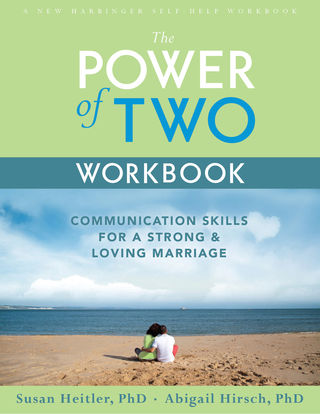Marriage
A Marriage Therapist's View Of Our Dysfunctional Government
Must political parties, and Presidential candidates, always fight each other?
Posted October 9, 2013

Countries can be regarded as large-scale family systems. We speak, for instance, of George Washington as the "father of our country." And it's not just the President who matters.
Governments are to citizens what parents are to kids. When government leaders work well together, the family thrives. When there is fighting within a parental unit or a government, the kids pay the price. I'm afraid the government dysfunction we've been witnessing of late suggests that our leaders need help with how to save a relationship.
In our current government, Democrats and Republicans are behaving in the manner of a couple heading for a divorce.
Like angry spouses, Democrats and Republicans in Congress, in the Administration, and in the media too often point fingers at each other instead of trying to find solutions to the problems they need to face. Sometimes they even stop talking to each other. It's bad.
Supreme Court Justice Antonin Scalia reports that the atmosphere in Washington has become so nasty that Democrats and Republicans no longer even socialize with each other, never mind discuss the important issues facing our country. As Justice Scalila once said in an interview with New York Magazines’ Jennifer Senior, “It’s a nasty time … When I was first in Washington and even in my early years on this court, I used to go to a lot of dinner parties at which there were people from both sides. Democrats, Republicans . . . It doesn’t happen anymore.”
Alas, many of the leaders of our political parties, and all too many of their followers as well, no longer even read the same newspapers or watch the same television stations. With different, limited, and biased data sources, their data bases and perspectives become ever more polarized over time.
Both sides seem locked in disrespectfully negative views of the other. There is far too much blaming and criticizing of their adversaries instead of problem-solving with them. There is far too little listening with appreciative understanding to the other side's concerns.
All of this parental bickering leads me feeling quite anxious.
In my gut, I know that their fighting is preventing them from paying attention to my needs.
Not all couples who lock into mutual hostilities arrived there because of equal input from both. Yes, we often say "It takes two to tango." At the same time, in the degeneration of many marriages a better analogy is a bank robber and a bank teller.
When there is a bank robber, the robber may initiate the interaction by acting in a manner that is completely out-of-bounds. In a marriage that might be via constant complaints and criticism, controlling behavior, affairs, explosive anger, alcohol or other drug abuse, gambling, excessive spending, or other significantly destructive behavior. The other side tries responding in various ways from anger to depression to withdrawal but nothing they do succeeds in changing the out-of-bounds behavior.
In the case of our current governmental crisis, however, both sides seem to be locked in blame.
As with most arguing couples, both parties are expressing legitimate concerns.
It is vital that a government govern, which means coming to shared decisions on vital national security issues such as keeping our country safe from either hostile others or economic disaster. Consider, cooperatively, financial issues of budget, debt, health care and how to be sure that citizens who cannot provide for themselves have financial cushions. Consider, cooperatively, how to keep our air and water clean, our climate livable, and citizenry employed.
And it is vital that our government leaders discuss these issues with their eyes open to the potential disaster ahead for our economy if we do not pay attention both to folks who really need government help and at the same time to how much the government is earning (from tax revenues), how much we are spending, and how much we are borrowing to make up the difference.
That is, government, party, and media leaders need to act like grown-ups, addressing issues toward the goal of creating best solutions, not aiming to smear the other side.
Emotional health and maturity vs. pathology and dysfunction
One indicator of a spouse's emotional health and maturity is how much the spouse discusses issues collaboratively or, by contrast, indulges in blame and criticism of his/her partner. Any of the latter suggests immaturity, low skills, or serious psychopathology.
Another indicator of emotional health and maturity is ability to do "bilateral listening," that is, to listen to and take seriously the other side's concerns and also one's own. Win-win solution-building rests on this ability, and ceases to be feasible when this ability is not present.
Sustaining a calm emotional tone is another indicator of emotional maturity. When government leaders sound petulant or even irritated, they do not sound grown-up.
The solution
In sum, from my marriage therapist's perspective, our government's current biggest problem is not the economy, Obamacare, or the debt ceiling. The problem is how the party, Congressional and media leaders are talking, and too often not talking, about our economic and other governance dilemmas.
Take a look at NoLabels.org to see how relatively simple it could be for Republicans and Democrats to co-create legislation that would offer win-win solutions to all of our current dilemmas of job creation, taxes, debt and more.
Our government's problem is not that the problems we face are so difficult; it's the bad behavior or our leaders. I repeat: our government's downfall is how its leaders are talking about each other, or else not talking to each other, instead of maturely discussing our economic and other national quandaries.
My request to our political party, media and governmental leaders
Be nice to each other. Talk respectfully to each other. Invite members of the other party to join you in constructive dialogue sessions. Listen respectfully instead of scorning and deprecating each others' concerns.
Let go of politics, that is, of maneuvering to win more elections and more power so that you can continue to ignore the other side's concerns. Go beyond the narcissism of insisting on getting your way. Put a 100% stop to your blame and criticism of the other party, behaviors we might expect of young children but not of our elected leaders.
Look instead to what you yourself might do differently to lead us all to a more cooperative political environment. Behave yourselves! And show the kind of leadership Americans deserve.
----------------------------------(c) Susan Heitler PhD----------------------------------------


Denver clinical psychologist Dr. Susan Heitler's book The Power of Two and its companion workbook, The Power of Two Workbook, clarify guidelines for collaborative dialogue, similar to way the book Robert's Rules of Order set forth guidelines for parliamentary procedure in formal meetings.
Her interactive online Power of Two program teaches these skills for use in couple and all collaborative relationships.
Understanding the guidelines for collaborative dialogue can give you a better marriage, more success on the job, and the ability to sustain friendships with people whose political views differ from yours. The rewards are high!




